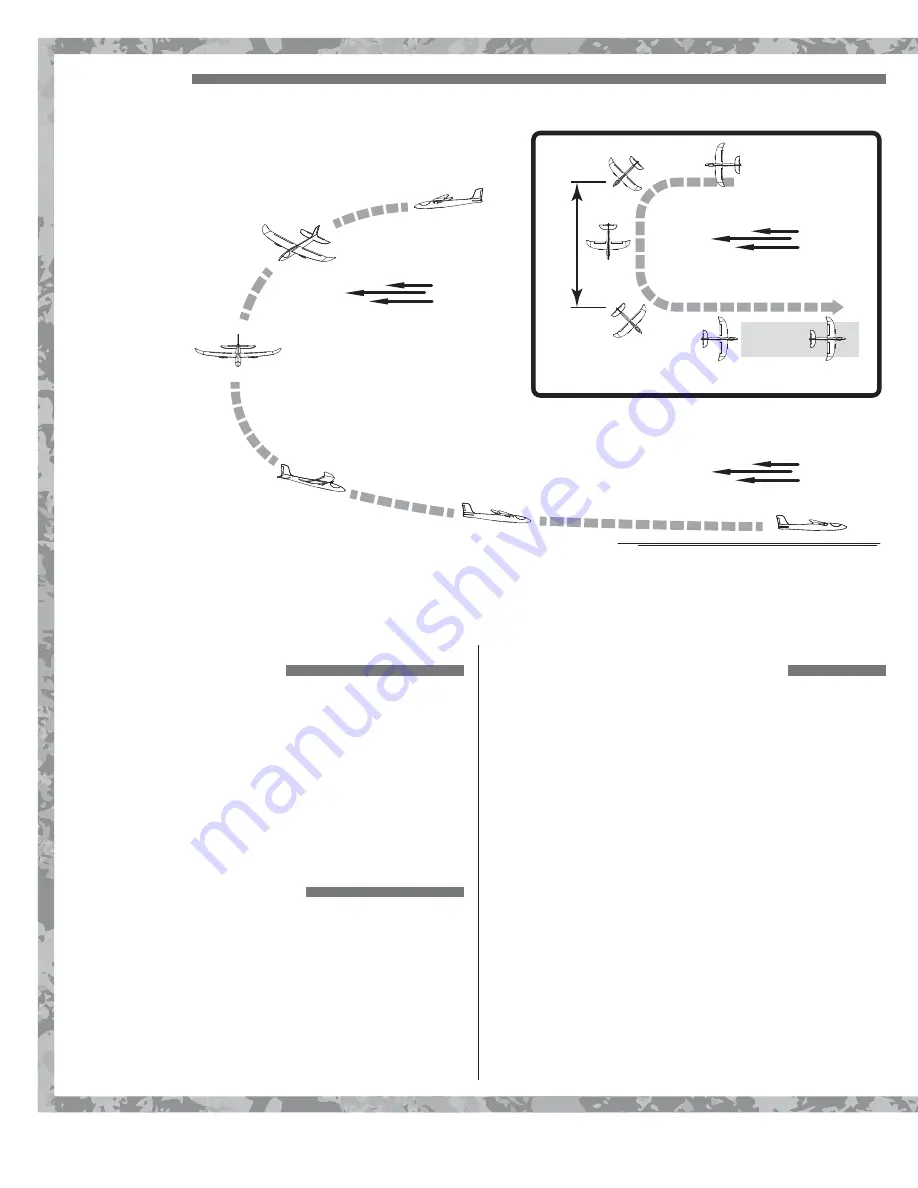
6
LANDING
When your plane feels like it is beginning to lose power, it is time to land.
Top View
1
2
3
4
5
6
Wind
Pilots View
Always land directly into the wind!
Wind
Wind
1
Fly downwind to set up for landing.
Reduce the throttle to about 25%.
2
Turn 90 degrees
using a small
amount of left stick.
3
Glide until
lined up for
final turn into
the wind.
4
Use a small amount of
right stick to turn into
the wind. You will want to
be lined up with the grass
landing area. Reduce or
increase throttle to adjust
speed and altitude so that
you reach your desired
landing point.
5
Reduce throttle to zero. Let it glide!
If you are short of the landing area,
add in a little power to extend the
glide. If you are long, power up and
go around for another try.
6
With the throttle at zero, just let the
plane glide into the grass and come
to a stop.
grass landing area
50
−7
5 feet
AFTER LANDING
1.
Always unplug and remove the plane’s battery first.
2.
Turn off the transmitter second.
3.
Allow the motors time to cool before flying again.
4.
Allow the flight battery to cool before recharging.
MAKING REPAIRS
For light weight and durability, the Twin Explorer is made
of foam. If it does break, repairs can be made using CA
(cyanoacrylate) glue or epoxy (available at your local hobby
shop). Once the glued parts are fitted together, use clear tape
to hold them in place as the glue dries. Small cracks can be
fixed with the clear tape without the glue. When doing repairs,
use as little glue as possible to keep the weight down and be
sure to keep the tail and wings as straight as possible.
REPLACEMENT PARTS
DIDA3030 Prop Set
DIDA3031 Motor Set
DIDA3032 Airframe
DIDA3033 Battery Hatch
DIDA3034 Motor Base
DIDA3035 2.4 GHz Receiver
DIDJ2000 2.4 GHz Transmitter
DIDP1093 LiPo 1S 300 mAh
DIDP1123 USB 1S LiPo Charger
DIDP1125 AC USB Charger Adapter 2 Amp


























